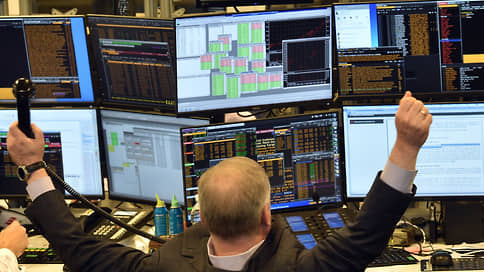Investors with limited liability – Newspaper Kommersant No. 21 (7466) dated 04.02.2023
[ad_1]

According to the results of January, the volume of trading in foreign securities on the SPB Exchange exceeded the indicator of the previous month by 1.5 times. However, the activity of investors is still significantly lower than in the summer or a year ago. In addition to the “freezing” of foreign assets of Russian investors, growth is constrained by restrictions on investments in foreign securities for unqualified investors. Analysts warn of continued sanctions risks when investing in shares of unfriendly countries, while expecting a market recovery in February.
Last January turned out to be the most successful for SPB Exchange in the last four months. The trading volume reached $4.7 billion, exceeding December’s figure by more than 1.5 times. Compared to January 2022, trading volumes are more than 6 times lower, but this is better than in the fourth quarter of last year, when the figures were 10-12 times lower. The number of transactions also rose significantly compared to December, reaching 2.85 million, the highest since September last year.
The growth of indicators relative to December is due to the conjuncture of world stock markets, experts say. The fall compared to last year is also caused by the geopolitical situation, and may partly be due to the introduction of restrictions for unqualified investors, said Alexander Tsyganov, director of the investment and corporate business department at Tsifra Broker. The decision of the Central Bank to restrict the access of unqualified investors to purchase securities of “unfriendly” issuers had a significant negative impact on the business of the SPB Exchange, notes Artem Autlev, an analyst at Ingosstrakh Investments. However, the impact of the Central Bank’s measure on the January indicators turned out to be not so significant: the restrictions came into full force on January 1, but gradually began to be introduced from October 1 last year, and investors and brokers began to adjust to them in advance. This is evidenced, in particular, by the fact that, according to SPB Exchange, for the past four months the number of active clients has been stably close to the 200,000 mark (1.5–2 times lower than in spring and summer, and 3.5– 4 times lower than in 2021).
At the same time, investors continue to explore the securities market from friendly countries. Thus, the volume of transactions in securities of Chinese issuers listed on the Hong Kong Stock Exchange in January reached HK$1.43 billion ($183.55 million), the highest value since the beginning of trading in these securities. However, compared with December, the growth was only 25%. The lagging growth rates can be partly attributed to several non-trading days, says Vasily Karpunin, head of the information and analytical content department at BCS World of Investments. In particular, there were three full-fledged working sessions less than for US stocks when Chinese stock exchanges were closed for the Lunar New Year celebration.
Currently, almost eight dozen Hong Kong shares are traded on the SPB Exchange, among such large issuers as Alibaba Group, Tencent, China Construction Bank Corporation, PetroChina Company, Aluminum Corporation of China. In November-December, the Hong Kong stock market grew strongly, rebounding confidently after a long fall, Mr. Karpunin points out. That drop, which he said made stocks overly cheap and oversold, could attract a large number of traders looking to take advantage of the recovery. “And in January the situation was already a little more calm on the Hong Kong stock market,” the expert believes.
However, when trading shares of companies from unfriendly countries, investors bear increased risks. The main one is the possible freezing of the assets of Russian investors by unfriendly countries, since the topic of new sanctions has not been removed from the agenda, Mr. Autlev notes. In addition, the risk of a global recession remains high, “if it materializes, financial markets will face a significant drop,” he notes. At the same time, Tsifra Broker expects that in February the turnover will grow compared to January, although it will be significantly lower than last year.
[ad_2]
Source link





